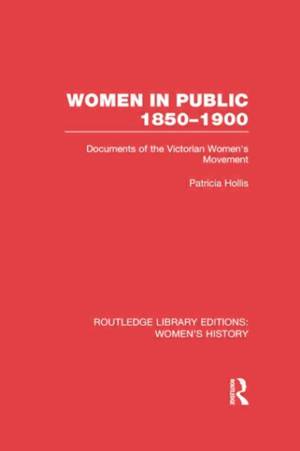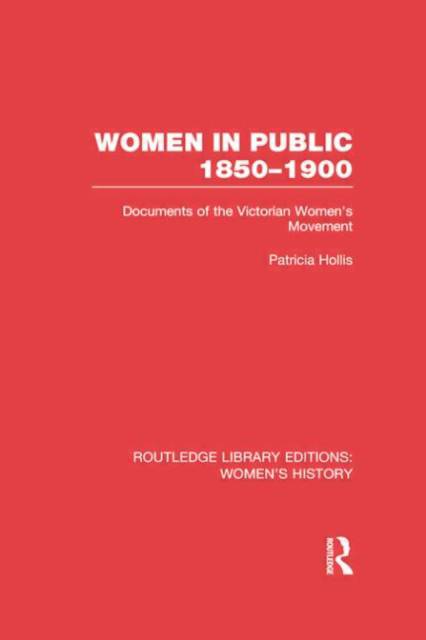
- Retrait gratuit dans votre magasin Club
- 7.000.000 titres dans notre catalogue
- Payer en toute sécurité
- Toujours un magasin près de chez vous
- Retrait gratuit dans votre magasin Club
- 7.000.0000 titres dans notre catalogue
- Payer en toute sécurité
- Toujours un magasin près de chez vous
Description
Assembling a full and comprehensive collection of material which illustrates all aspects of the emergent women's movement during the years 1850-1900, this fascinating book will prove invaluable to students of nineteenth century social history and women's studies, to those studying the Victorian novel and to sociologists.
Women's pamphlets and speeches, parliamentary debates and popular journalism, letters and memoirs, royal commissions and the leading reviews, are all used to document the conflicting images of women: 'surplus women' and the issue of emigration; women's work and male hostility to it; the opening of education by Emily Davies; the claim to equity at law; the attack on the sexual double standard, led by Josephine Butler; women's public service from philanthropy - exemplified in a Mary Carpenter or Louisa Twining or Octavia Hill - to local government; and finally women's entry into politics led by Lydia Becker.
The contents range from Caroline Norton on her battle for child custody in the 1830s to Annie Besant's inspiration of the match-girl's strike in 1888, and from W. T. Stead on child prostitution to Mrs Humphrey War's Appeal against female suffrage in 1889.
The book was originally published in 1979.
Spécifications
Parties prenantes
- Auteur(s) :
- Editeur:
Contenu
- Nombre de pages :
- 358
- Langue:
- Anglais
- Collection :
Caractéristiques
- EAN:
- 9780415752558
- Date de parution :
- 10-04-14
- Format:
- Livre broché
- Format numérique:
- Trade paperback (VS)
- Dimensions :
- 152 mm x 229 mm
- Poids :
- 521 g







